This is the first in a series of ten articles exploring the pivotal role of the Chief Operating Officer (COO) within law firms. Through this series, we will delve into the multifaceted responsibilities of the COO, from spearheading operational efficiencies and strategic planning to fostering innovation and mentorship within the firm. Our journey will uncover how the COO’s leadership, financial acumen, and visionary strategies not only drive the firm’s success but also cultivate a culture of excellence and collaboration. Join us as we explore these critical competencies and their impact on the growth and resilience of law firms in today’s dynamic legal landscape.
The Pillar of Leadership: The COO’s Role in People Management
In the intricate ecosystem of a law firm, where diverse talents converge to address complex legal challenges, the role of a Chief Operating Officer (COO) transcends operational oversight. At the core of their responsibilities lies an indispensable facet of leadership: the ability to inspire and lead a diverse team. This ability is not just about steering the firm towards efficiency and profitability; it’s about nurturing a culture of excellence that permeates every level of the organization.
Setting the Tone for Excellence
Leadership within a law firm, especially that exhibited by the COO, is about setting the tone for an environment where excellence is not merely pursued but is the standard. This environment is characterized by a shared vision, mutual respect, and a collective drive towards achieving the firm’s goals. The COO’s leadership sets the foundation for this culture, demonstrating through actions and decisions what it means to strive for excellence. It’s about creating a workspace where each member feels valued and empowered to contribute their best.
Historically, law firms have not always been havens for open dialogue, particularly for ideas that diverge from the viewpoints of senior partners. This cultural legacy has often stifled innovation and discouraged the free exchange of ideas, which are crucial for adaptation and growth in the rapidly evolving legal landscape. A COO, as a change agent, possesses a unique opportunity to transform this dynamic, championing an environment where diverse perspectives are not only welcomed but are seen as essential. By encouraging open communication and ensuring that all voices, regardless of rank or tenure, are heard and valued, the COO paves the way for a more inclusive, innovative, and dynamic firm culture. This shift not only enhances the firm’s adaptability and problem-solving capabilities but also strengthens its internal community, making it a more enriching place to work.
Fostering a Diverse and High-Performing Team
Diversity within a team brings a rich tapestry of perspectives, experiences, and skills, which is invaluable in the complex field of law. A COO’s ability to harness this diversity, aligning it with the firm’s goals, is key to building a high-performing team. This involves recognizing individual strengths, addressing weaknesses, and placing team members in roles where they can thrive and contribute most effectively.
Developing such a team requires a strategic approach to recruitment, training, and development. It means looking beyond the resume to understand the individual, their motivations, and potential for growth. By promoting diversity and inclusion, a COO ensures that the firm benefits from a wide range of viewpoints, fostering creativity and innovation.
In crafting a strategic approach to the recruiting process, a COO can significantly enhance the effectiveness and efficiency of building a team aligned with the law firm’s long-term goals and culture. The process begins with a thorough job analysis for each open position, which goes beyond the traditional job description to deeply understand the role’s impact on the firm’s operations and strategic objectives. This analysis should identify not only the necessary technical skills and legal expertise but also the soft skills, cultural fit, and potential for growth that would make a candidate truly ideal for the firm.
The COO, by identifying these traits and skills early in the process, can tailor the recruitment strategy to seek out these qualities explicitly. This could involve crafting job postings that highlight the firm’s values and the specific attributes it values in its team members, as well as leveraging networking events, professional associations, and social media to reach a broader and more diverse candidate pool. Additionally, the COO can implement structured interview processes that focus on behavioral and situational questions designed to reveal candidates’ problem-solving abilities, adaptability, teamwork, and alignment with the firm’s core values.
By being strategic in the recruiting process, including performing detailed job analyses and focusing on a comprehensive set of criteria for ideal candidates, the COO ensures that the firm not only fills positions with competent individuals but also with professionals who will drive the firm forward, embrace its culture, and contribute to its long-term success.
The Importance of Mentoring
Mentoring is a critical component of people management that often determines the trajectory of a firm’s growth and the personal development of its team members. Through mentoring, the COO can directly influence the professional development of the staff, guiding them through challenges, and providing them with the tools and knowledge needed to excel. This one-on-one engagement not only accelerates individual growth but also strengthens the firm’s capabilities as a whole.
Effective mentoring involves setting clear objectives, providing constructive feedback, and being genuinely invested in the mentee’s success. It’s about being accessible, offering guidance, and encouraging open communication. For the COO, mentoring is also an opportunity to imbue the firm’s values and culture into its future leaders, ensuring the sustainability of the firm’s excellence.
The COO, with their comprehensive understanding of the firm’s vision, operational intricacies, and strategic direction, is uniquely positioned to serve as a mentor to the firm’s leadership. Additionally, by defining and managing a mentoring program for the firm’s attorneys, the COO ensures the cultivation of a nurturing environment conducive to professional growth and advancement for all members of the firm.
Mentoring the Firm’s Leadership
For the firm’s leadership, the COO acts as a sounding board, advisor, and guide. This mentorship involves sharing insights on navigating the complexities of the legal market, fostering a culture of innovation, and leading with empathy and integrity. The COO can help emerging leaders understand the nuances of managing operations, financial planning, and client relations, all while staying true to the firm’s core values. This mentorship is not just about transferring knowledge; it’s about inspiring leaders to think strategically, act decisively, and lead with a vision that aligns with the firm’s goals.
To achieve this, the COO can establish regular one-on-one sessions, leadership workshops, and shadowing opportunities that allow for the transfer of critical skills and insights. These initiatives not only enhance the leadership capabilities within the firm but also strengthen the alignment and cohesion among the top management, ensuring a unified approach to achieving the firm’s objectives.
Defining and Managing a Mentoring Program for Attorneys
The development of a structured mentoring program for attorneys is another area where the COO can make a significant impact. Such a program is designed to match less experienced attorneys with more seasoned professionals, facilitating a transfer of knowledge, enhancing skill sets, and accelerating career advancement. The COO’s role in this process involves:
- Program Design: Outlining clear objectives, participant criteria, and matching processes to ensure that both mentors and mentees benefit from the program. This includes setting measurable goals that align with the firm’s strategic vision for talent development.
- Monitoring and Evaluation: Implementing mechanisms to monitor the progress of the mentoring relationships and evaluate their impact on the attorneys’ development and the firm’s overall success. This could involve regular feedback sessions, surveys, and review meetings to assess the program’s effectiveness and make necessary adjustments.
- Cultural Integration: Ensuring that the mentoring program is not just an isolated initiative but a core part of the firm’s culture. This involves promoting the value of mentorship across the firm, recognizing and rewarding effective mentors, and highlighting success stories to inspire participation.
By actively mentoring the firm’s leadership and managing a comprehensive mentoring program for attorneys, the COO plays a critical role in fostering a culture of continuous learning, collaboration, and professional growth. This not only enhances the capabilities and satisfaction of individual team members but also positions the firm for long-term success by developing a pipeline of skilled, motivated, and aligned leaders ready to tackle the challenges and opportunities of the legal industry.
Conclusion
The COO’s role in people management is a multifaceted endeavor that encompasses leadership, strategic recruiting initiatives, diversity and inclusion, and mentoring. By embodying these principles, the COO not only enhances the firm’s operational effectiveness but also its moral fiber. The result is a law firm that is not just a collection of legal professionals, but a unified, high-performing team poised for success in the competitive landscape of legal services. Through their leadership, COOs create more than just a workplace; they cultivate an environment where excellence is the norm, diversity is valued, and everyone is given the opportunity to grow and excel. In doing so, they ensure that the firm is not only prepared for the challenges of today but is also building the legal leaders of tomorrow.






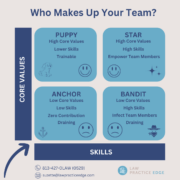
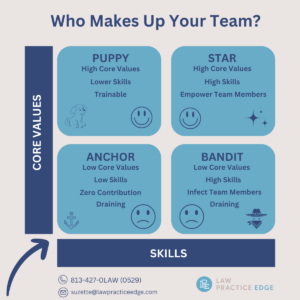
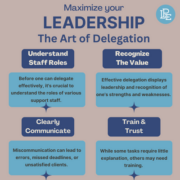
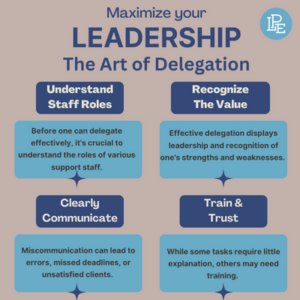
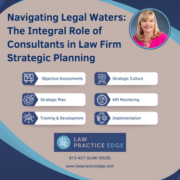
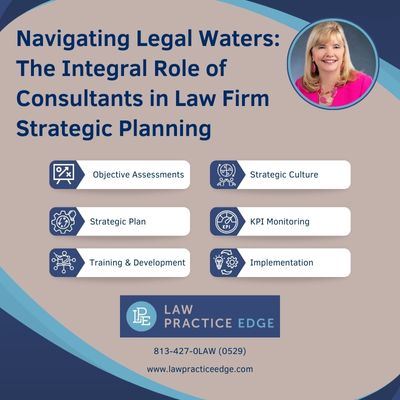 In an increasingly complex and competitive legal marketplace, law firms are recognizing the necessity for more business-oriented strategies. Gone are the days when reputations alone could guarantee a steady stream of clients. In today’s environment, strategic planning – the art and science of bridging a firm’s current operations with its future direction – has become critical. Here, a law firm management consultant emerges as a lighthouse guiding firms through uncharted territories. These professionals play an integral role in shaping a law firm’s strategic trajectory, ensuring not just survival, but prosperity. The right consultant will be able to provide the following:
In an increasingly complex and competitive legal marketplace, law firms are recognizing the necessity for more business-oriented strategies. Gone are the days when reputations alone could guarantee a steady stream of clients. In today’s environment, strategic planning – the art and science of bridging a firm’s current operations with its future direction – has become critical. Here, a law firm management consultant emerges as a lighthouse guiding firms through uncharted territories. These professionals play an integral role in shaping a law firm’s strategic trajectory, ensuring not just survival, but prosperity. The right consultant will be able to provide the following:






